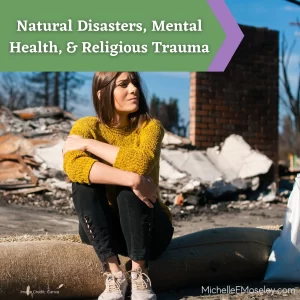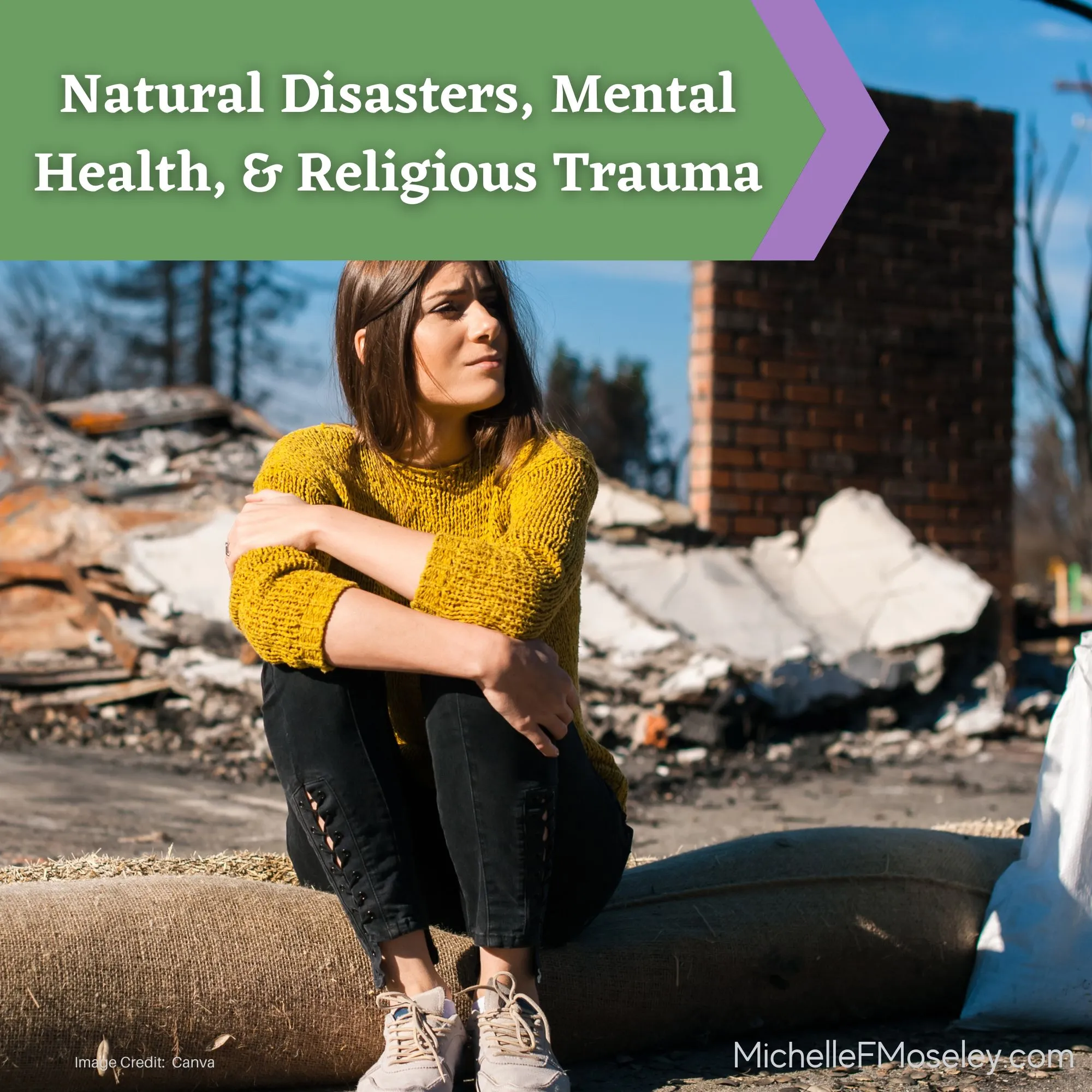Western North Carolina experienced flooding of unimaginable proportions from Hurricane Helene at the end of September 2024. This is an area of the state that was never supposed to deal with hurricane-related natural disasters. Yet, many folks are still without power and water 3 weeks out from the disaster. Some have been told they may get access to clean, running water by the end of the year.
Folks have lost their homes, businesses, and way of life. Some towns were completely washed away in the flood waters, and the terrain of many areas will never be the same. Many people spent days unable to connect with loved ones, and some folks have still not been accounted for. The physical impacts of Helene are widespread and often outwardly visible.
The mental, emotional, relational, and spiritual impacts may not be quite so easily seen.

Appalachian folks (an old school term for those born and raised in Western NC) are tough! They have banded together to help one another. They are often weary of outside help, yet have been faced with so many outsiders coming in to offer assistance. Some of this assistance has been the kind that connects with locals, figures out how to be most helpful, and brings their skills and resources to those needs. Others have come in without a plan or useful skills, and without any connection to local needs. These individuals and groups have caused more strain on limited resources and taken away from the human power being utilized to meet the most pressing needs.
Many of those who experienced Hurricane Helene firsthand went immediately into an adrenaline-driven shock. For some, this led to lots of action from using canoes to reach stranded neighbors to using chainsaws to get through fallen debris. This action may have continued for days, or even weeks, after the immediate impact.
For others, the shock caused their nervous system to shut down. They may have been unable to speak or make decisions. They may have needed support to ensure their basic survival needs were being met.
There have also been 1000s of first responders (of various sorts) who went directly into the situation to bring their skills and assistance when most needed. They have seen and heard the impacts firsthand. They have called on their training to do their job amidst great human suffering.
Now, as we’re three weeks out from Helene, a lot of folks are moving out of that period of initial shock. Their bodies and brains are exhausted. The immediate need for action has lessened in some areas. The early responders may be returning to their homes as their deployments have come to an end. Lots of people are being faced with the reality of the impacts of this storm.
Mental health support is a necessary part of recovery from natural disasters. As folks move out of the initial period of shock, many emotions may arise. These can include: anger that this happened, grief over what has been lost, guilt for those who may not have experienced the same loss as their neighbors, gratitude for the assistance that has been given, or worry about what the future holds.
There are several hundred licensed mental health professionals, including myself, who are available for pro bono and low-cost services to support our Western NC neighbors. Many of us were already working with folks located in the impacted areas of the state, and have been on the front lines of supporting them in these early weeks.
If you are someone impacted by Helene and seeking mental health support, please check out this list of Western NC providers or visit this list of Mental Health Professionals offering their services. You can also follow NC Mental Health Emergency & Disaster Responders on Instagram for updated resources.
If you would like to donate toward mental health support for those in Western NC, contact me for further details. All support will go toward covering the cost of free and low-cost sessions, as well as providing income for some of the mental health therapists who have lost substantial income in the aftermath of the floods.
Natural Disaster and Religious Trauma
My work in supporting survivors of religious trauma and my location in North Carolina means that I have direct contact with quite a few folks who have been directly affected by Helene. Many of these people have also found themselves dealing with fear, anxiety, and grief related to the ways that religion has been woven into the narrative of destruction and recovery.
I do want to acknowledge that there are people and groups who are driven to provide assistance based on their personal religious beliefs, and who have been integral in recovery and support efforts. These are frequently those who already had a connection to Western NC – they know the people and the area, and were able to quickly assess for real-time needs. It also seems the most helpful folks are drawn to do so out of the compassion for humanity that they draw from their religion, rather than from a mandate to convince others to share their beliefs.
Then there are those who have acted out of religious beliefs, yet are not assisting in ways that are truly helpful. This may be because they have their own agenda in having “boots on the ground.” Their presence may be problematic because they didn’t connect locally to determine the needs, and they end up draining the limited resources when they just show up in an area.
In part 2 of this blog post, I will provide three examples of how this drive to help can both stir up emotions related to past religious harm and create new instances of religious trauma, or trauma with a religious component.
Stay tuned for more…
Michelle F. Moseley is a Licensed Mental Health Counselor in NC. She believes ALL people deserve respect, compassion, and access to mental and physical healthcare. Michelle specializes in working with survivors of religious trauma and with those who have body image concerns, finding there is frequent overlap in these areas. You can learn more about Michelle by visiting her website at MichelleFMoseley.com or following her on Instagram – @therapy_with_michelle
Sign-up for Michelle’s Monthly Email Newsletter to make sure you never miss a blog post


